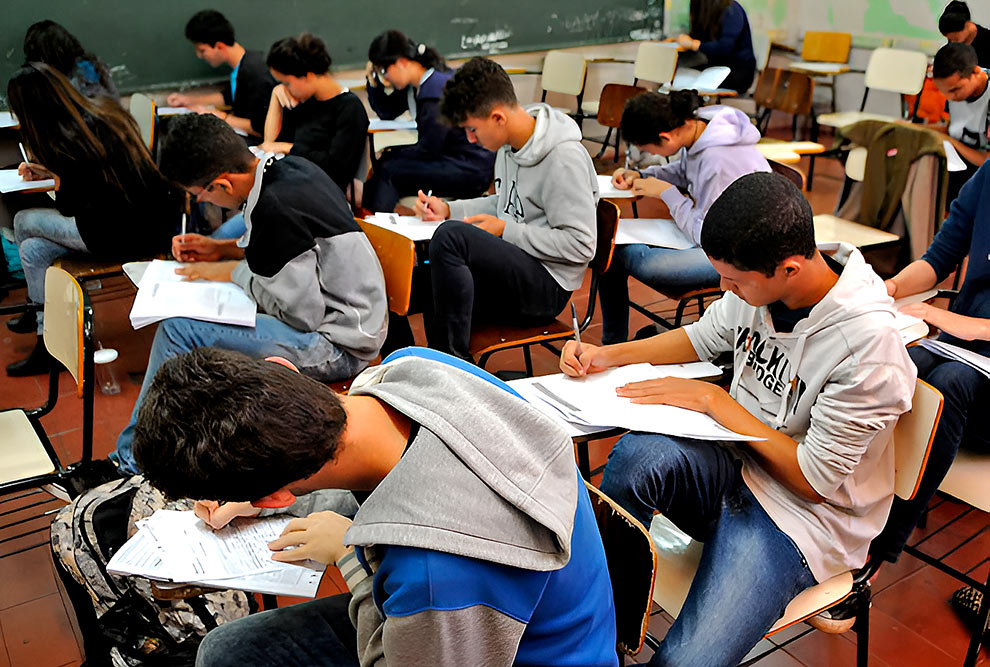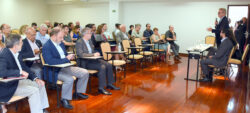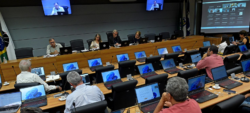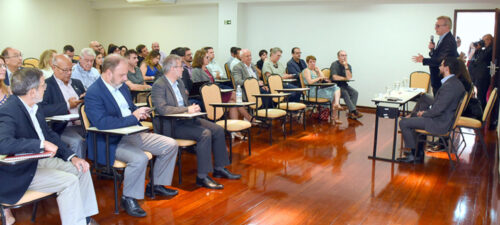The three state universities in São Paulo — Unicamp, University of São Paulo (USP) and São Paulo State University (Unesp) — were invited by the state government to participate in the elaboration and organization of an evaluation system for public high school students, the last stage of the basic education — which precedes entry to higher education.
The model, to be created jointly by the secretariat and the state universities, should provide for a performance evaluation to be carried out over the three years of the cycle and could serve as a basis for admission to vacancies offered by the universities.
The evaluation program was proposed by the secretary of Education, Renato Feder, to the rector of Unicamp, professor Antonio José de Almeida Meirelles, in a hearing held last Friday (3), in São Paulo. Previously, the secretary had already discussed the subject with the deans Carlos Carlotti (USP) and Pasqual Barreti (Unesp).
Meirelles explained that the proposal is not detailed, since the regulation, with the rules of the possible new system, will require studies by both the secretariat and the universities. He noted that these studies have not been started.
The dean assesses, however, that the proposal opens up the possibility for the three universities to play an important role in the evaluation of secondary education, which may result in the improvement of public education. “Among other reasons, because such an action will foster closer relations between the universities and public high school students in the state”, he explains.

complement and reinforcement
At the meeting, the dean and the secretary also talked about the creation of an action program for undergraduate students from the three state universities in pre-university public education in the state.
The idea is that undergraduate university students work in state public school classrooms as a complement and reinforcement for the network's effective teaching team. In return, the state government would offer scholarships to participants. Meirelles suggested to the secretary that quota students be included in the program.
“The idea suggested by the Department of Education is greater involvement of undergraduate students with public schools in the state of São Paulo”, says the dean. “This proposal would involve granting scholarships, and this would be done by seeking to guarantee the quality of action of our undergraduate students, that is, considering their ability to contribute to improving the quality of public secondary education in the state”, he informs. “The objective is an additional collaboration in the training of pre-university public education students”, he summarizes.
student stay
President of Cruesp (Council of Rectors of State Universities of São Paulo), the rector of Unicamp, in turn, asked the secretary to create a program to support student permanence in the three state universities.
“What we feel is that there is a pre-disposition on the part of the Secretariat to have an auxiliary policy in this case. We are very concerned about permanence, and it is important that the authorities are sensitive to the need for a consistent program in this sector. On our part, we are fully available to collaborate in the formatting of this program”, he guarantees.
Positive balance
The dean made a positive assessment of the meeting. “Without a doubt, it was an important meeting with regard to possible developments of the initiatives. Now it is a question of formatting these activities together with the other universities and with the state secretariat itself to verify how this can gain concrete contours”, he evaluates.
“All these suggestions require a series of discussions within our communities and with the secretariat, to find the best way to make these hatreds viable, to transform them into reality. These are projects that can bring positive aspects to the three state universities and to public education in our state”, concluded Meirelles.
Originally published on Unicamp website





